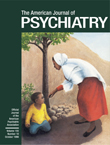Encyclopedia of Phenomenology
Most readers of The American Journal of Psychiatry will wonder why an encyclopedic volume covering an important, although frequently misunderstood, strand of Continental philosophy should find its way into the review section of said journal. The short answer is, “Because there is a lot of psychiatry in these 700-plus pages.” The longer answer will occupy the rest of this review.
The word “phenomenology” is quite common in the psychiatric literature, usually referring to the clinical-descriptive and experiential dimensions of psychopathology. Here, “phenomenology” refers to, variously, a philosophical method, an ideological position, an attitude, and a tradition, mostly occupying the field of philosophy. However, as one can determine from this volume, phenomenological psychiatry, strictly understood, is alive and well around the world.
At $450.00 a pop, this is a book for libraries and wealthy aficionados. In the context of growing interest in and greater practical impact of the philosophy of psychiatry, this is a reference of importance, a worthy companion to other fine encyclopedic references of ideas, such as The Oxford Companion to Philosophy(1) and The Johns Hopkins Guide to Literary Theory and Criticism(2). Carefully referenced with more than 200 entries, the Encyclopedia of Phenomenology is essential to scholars of psychopathology, especially those interested in the genesis and background of the many European approaches to mental disorder.
At first, psychiatrists may be intrigued by the definitive coverage of the natural and human sciences (by Elisabeth Ströker, Joseph Kockelmans, and Lester Embree), cognitive science (by Osborne Wiggins and Manfred Spitzer), medicine (by Richard M. Zaner), and psychiatry (by Osborne Wiggins and Michael Alan Schwartz) as well as the presentations of key figures in classical phenomenological psychiatry (e.g., Aaron Mishara’s piece on Ludwig Binswanger and Wiggins and Schwartz’s entry for Karl Jaspers). These pieces not only cite the major thought and figures in the field but also situate them in an overall intellectual history.
Closer looks at the less obvious entries will also reap rewards for the clinician. A veritable, but short, course on hermeneutics can be derived from the entries on Hans-Georg Gadamer, Wilhelm Dilthey, Paul Ricoeur, hermeneutics and hermeneutic phenomenology, and psychoanalysis. Discussions of concepts and practices fundamental to clinical work were the most eye-opening of all for me, particularly Elisabeth Ströker’s discussion of evidence, Edward Casey’s section on memory, Lester Embree’s on naturalism, and Ernst Wolfgang Orth’s on philosophical anthropology.
Two criticisms come to mind. Many of the entries, to my mind, focus too much on a listing of names rather than a discussion of ideas, almost as if the authors were anxious about offending someone through omission. The second is more a caveat than a criticism. The person naive to phenomenological philosophy will find much of this rough going. The editors presume that the reader has a significant background knowledge of the field. Although the editor’s introduction provides an overview, the uninitiated may still have trouble navigating. This aside, the Encyclopedia of Phenomenology should serve its readers well.
1. Honderich T (ed): The Oxford Companion to Philosophy. Oxford, England, Oxford University Press, 1995Google Scholar
2. Groden M, Kreiswirth M (eds): The Johns Hopkins Guide to Literary Theory and Criticism. Baltimore, Johns Hopkins University Press, 1994Google Scholar



